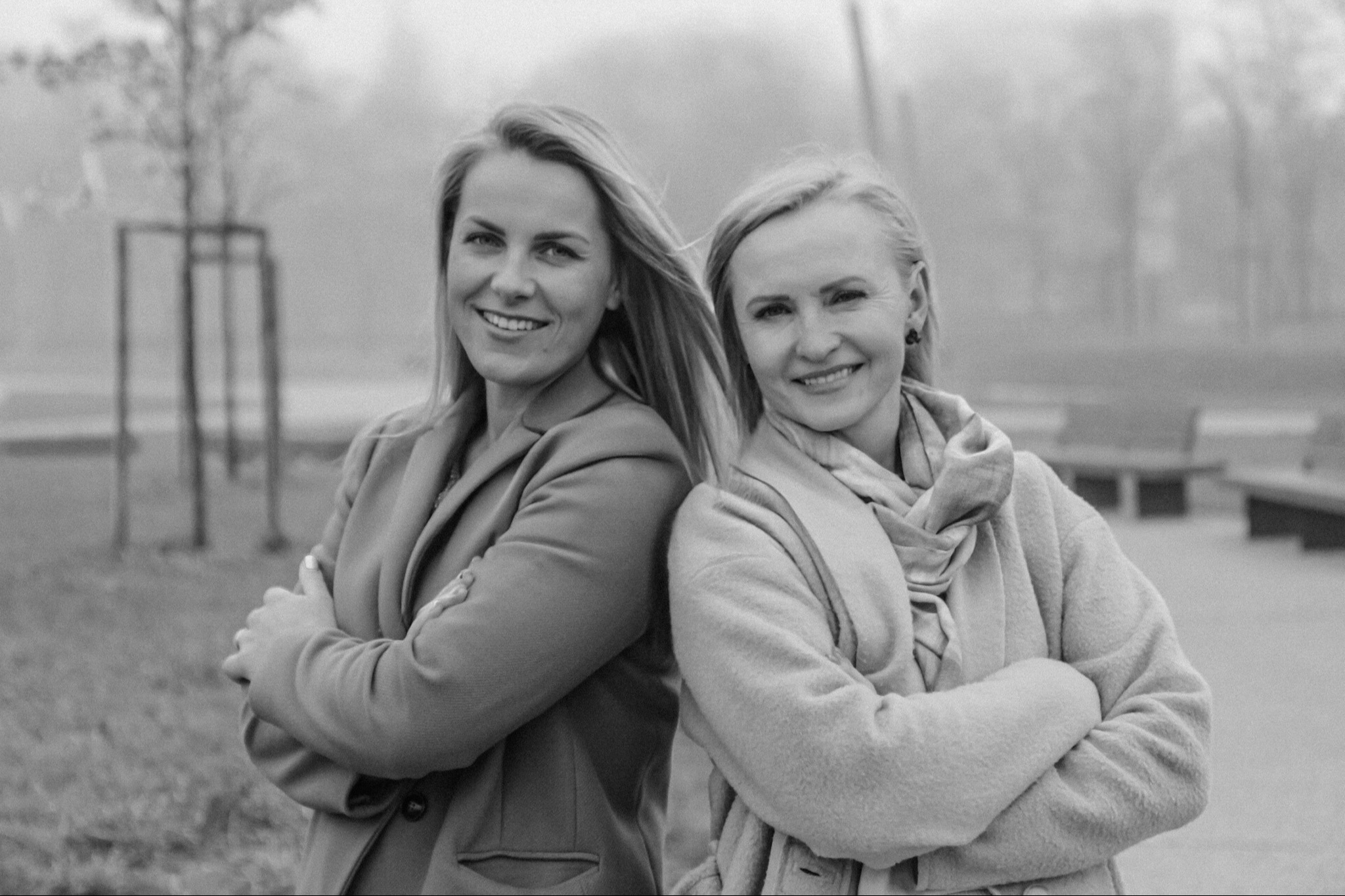Kristina Rimkienė and Simona Petrovskaja, members of the Klaipėda County Society of Parents of Hearing Impaired Children and Youth “Aidas”, are currently participating in the long-term training program “NGO Academy. Social Leaders Program”. We spoke with Simona and Kristina about the inclusion of people with hearing impairments, the activities of the Association “Aidas,” and their studies at the NGO Academy.
Kristina, Simona, introduce the Association “Aidas” to those who have not yet heard of it. What are your areas of activity?
Simona: “Aidas” is a parents’ association operating in Klaipėda County that unites families raising children with hearing impairments as well as hearing-impaired and deaf parents. We create opportunities for these families to strengthen their sense of identity and community, provide qualified surdopedagogical and psychological assistance, and organize leisure activities for children and young people.
Kristina: We have been working together in this field for a long time, both of us raising children with hearing impairments, so we know this field personally. I understand the situation of deaf parents, and Simona understands the challenges faced by hearing parents, so we complement each other very well! We bring families together, share experiences, and solve problems together. The organization has been around for 30 years, and Simona and I have been actively involved in its activities since 2017.
How did you decide to participate in the NGO Academy training?
Kristina: At first, “Aidas” was our social activity after other commitments, so we started slowly, but we always had a vision to expand our activities and strengthen the organization. We also realized that in order to have a stronger organization, we ourselves need to improve and gain more experience. We have experience in leadership and community building, but we needed a push to take concrete action. The NGO Academy was just that push!
Simona: We do a lot, participate in both training and different projects, and meet with families in person. However, we realized that we cannot cover everything, we were thinking about how to allocate our time more efficiently, to go deeper. When we started studying at the NGO Academy, we clearly formulated our goals and strategies, and from many paths and branches, a straight path emerged that we are now following.
What challenges does your organization face?
Kristina: We notice that parents, when they learn about their child’s deafness, often feel lost and do not know where to turn for help. Sometimes parents with hearing impairments have problems with institutions not because of negligence, but simply because they do not receive the information they need. Therefore, we strive to provide help and attention to both parents and their children. However, there are many challenges, and there are no simple solutions. For example, many deaf children experience psychological problems and communication barriers, parents with hearing impairments face different challenges, and hearing parents raising deaf children face different challenges. These target groups need specialized knowledge and experience, but there is a shortage of psychologists who can understand their needs.
Simona: How to solve this problem? We are thinking about how to involve sign language interpreters. It was during the NGO Academy that we refined the idea of a psychologist and sign language interpreter tandem. Such a team could make help more accessible to people with hearing impairments. The cooperation between a psychologist and an interpreter would allow specialists working with deaf children and people with hearing impairments to find the best approach, share necessary knowledge and experience, and thus avoid gaps and overcome communication barriers.
Kristina: This is a sensitive topic that requires parents to change their attitudes. It is important to first see the child as a person, not their disability. Do not compare the child to others, do not feel sorry for them, raise them first and foremost as a child! In order to achieve good results, attention, knowledge and hard work from the parents themselves, as well as help and support from specialists, are also needed.
Would you recommend the NGO Academy to other NGOs?
Simona: As already mentioned, in addition to theoretical knowledge, the Academy gave us a push, it was a good kick. We are not short of courage, but during the Strategic Planning module alone, we refined a clear direction, a very valuable direction. We have also started to consider the possibility of creating a social enterprise. We hope that it will be successful!
Kristina: Absolutely! The NGO Academy has definitely inspired us to act and not wait for the end of the training. We are already using the knowledge we have gained. We are thinking about the future, we have written a public activity report, have found new premises for the organization. In addition, we are changing the organization’s logo and name, have prepared a new project application…
Simona: We’ve been working in this field for seven years now, but this is the first time we’ve felt so passionate about everything. The NGO Academy has breathed new life into us. I have a business education, and I thought that I hadn’t learned as much in all my studies as I did in the first three days of the NGO Academy. It was concentrated, interesting, and informative – I’ve never enjoyed training so much before.





